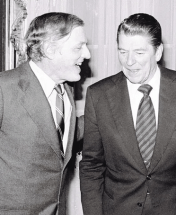
What’s the greatest sin of all, one that’s unconscionable, unforgivable and irredeemable? A transgression, as one must assert with uncompromising vigour, that has been negligently omitted from those biblical commandments and lists of deadly sins?
Correct. It’s racism, and I’m proud of you for giving this answer without any hesitation. You are a man of your time, the most progressive time in history.
And what’s the greatest possible crime, perhaps even more heinous than murder? If you instantly thought of rape, full marks. Forcing sexual attentions on a woman leaves a wound festering over a lifetime, one much worse, as we all know, than any physical injury and arguably even death.
Now we’ve agreed on the two most fundamental tenets of modernity, we must accept with hand-wringing anguish that they are at odds. Though racism doesn’t necessarily presuppose a proclivity to rape, rape, or rather rape statistics, may turn even some impeccably progressive people into racists.
How do I define racism? If you have to ask this question, my faith in your progressive credentials gets a dent. Obviously, I don’t just define it as hatred of other races. Such a narrow understanding goes back to the time when racism was still called racialism.
No, I define it as Sir Keir Starmer does: a racist is anyone who resembles Nigel Farage in his urge to reduce immigration of cultural aliens. After all, Sir Keir is our prime minister, while Farage is but a lowly MP. Whom would you rather trust in such sensitive matters? Exactly.
Regrettably though, it’s this definition of racism that’s in conflict with rape statistics. What if a racist like Nigel Farage were to claim, data in hand, that incidents of rape increase pari passu with a growing immigrant population? Would we then have to admit that curtailing immigration isn’t such a bad idea after all? Would we then incline towards racism?
No, of course not. As progressive people, we are impervious to facts. We know that only one explanation can possibly exist for wanting to reduce immigration: xenophobia, racially expressed.
But what if some retrograde individuals out there still aren’t fully paid-up members of the progressive community? What if they are still trying to decide whether or not they are racists? Well, rape statistics from different countries may deepen their confusion.
Just compare two sets of figures for four of the five most populous European nations, England & Wales, Germany, France and Poland. (Rape statistics for the Ukraine are artificially skewed upwards by the presence of Russian soldiers on her territory.)
The first set of figures is the number of rape reports in the year 2000: England & Wales, 8,593; Germany, 8,133; France, 7,500; Poland, 2,399.
The second set is made up of the same statistics for 2023: England & Wales, 68,109; Germany, 32,029; France, 42,400; Poland, 1,127.
The numbers differ so drastically that they call for an explanation. Why, for example, did the number of rapes in the three Western European countries increase by an order of magnitude, while halving in Poland?
Did our population increase during that period? It did, but not that much, not enough to account for a seven-fold hike. Did testosterone levels go up so much in Western Europe that men there became more aggressive and more virile? There are no data to that effect, nor to the effect of Polish men growing more docile and effeminate.
Help me out here, I’m struggling. Were rape victims in Western Europe more likely to report their ordeal in 2023 than in 2000? Possibly. But we aren’t talking orders of magnitude there. In any case, why would Polish women become more reticent by half?
Logic suggests that, if one variable changes dramatically and most of the others don’t, we must search high and wide for another variable that undergoes a similar change at the same time. Once we’ve found it, we’ve found the explanation for the first variable. Sherlock Holmes would be proud of us.
Let’s not bother the great detective though. We don’t need his prodigious skills to identify our culprit. Between 2000 and 2023, millions of Muslim immigrants arrived in Britain, Germany and France. Hardly any chose Poland as their destination.
Therefore, at the risk of being accused of, or even charged with, racism, we have to accept mournfully and apologetically that there is only one explanation for the statistical disparity in question. Western Europe being overrun with swarms of new arrivals who flout our laws and ignore our tradition of pursuing amorous favours.
They bypass such silly preliminaries as flowers, chocolates and dates at overpriced restaurants, instead taking a shortcut to gratification. To quote the old commercial, they take the waiting out of wanting.
But where are the cops when we need them? Glad you’ve asked. They are busy attending DEI classes and indoctrination sessions on racism, institutional bias and Islamophobia. They are taught to respect the customs of other cultures, and, when such customs clash with ours, they are trained to believe ours are in no way superior.
Most of them despise all that nonsense, but, like you and me, they don’t want to complicate their lives. They know that arresting a Muslim on suspicion of rape, especially if the chap wasn’t caught in the act, may get them in trouble with their DEI department.
Even if it doesn’t, there will be endless forms to fill, countless interviews to sit through, more training sessions to suffer – all for a case that may never even go to court or, if it does, will probably end in acquittal.
So good cops, those who lost their idealism years ago, wash their hands on the crime or else chew on that old chestnut about the woman egging hotblooded males on by wearing suggestive clothing. Life’s easier that way.
Suddenly I’ve realised that I am myself sounding like a rank racist. I assure you that’s not the intention. I’m just not imaginative enough to think of any other explanation for the cited rape statistics. My fault entirely.
I’m also worried that such statistics may turn progressive people away from progress and towards its enemies. Such as Nigel Farage and everyone else Sir Keir Starmer doesn’t like.








